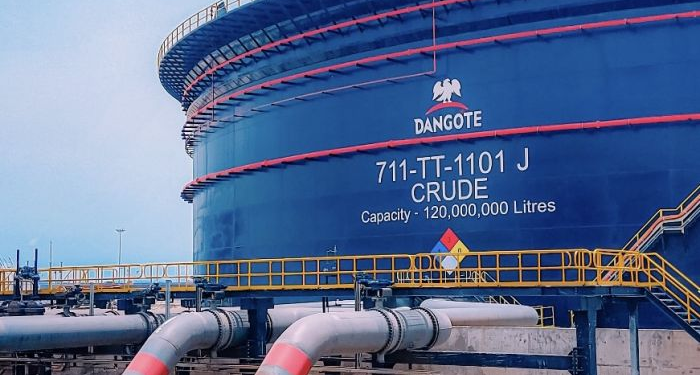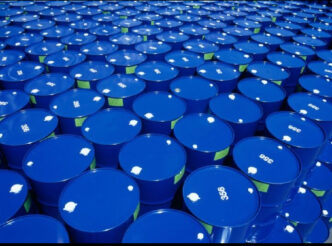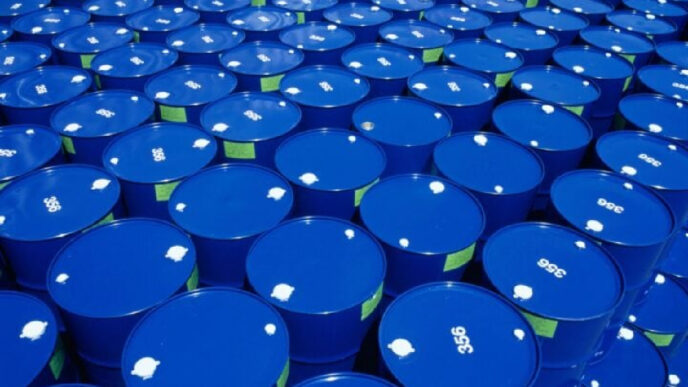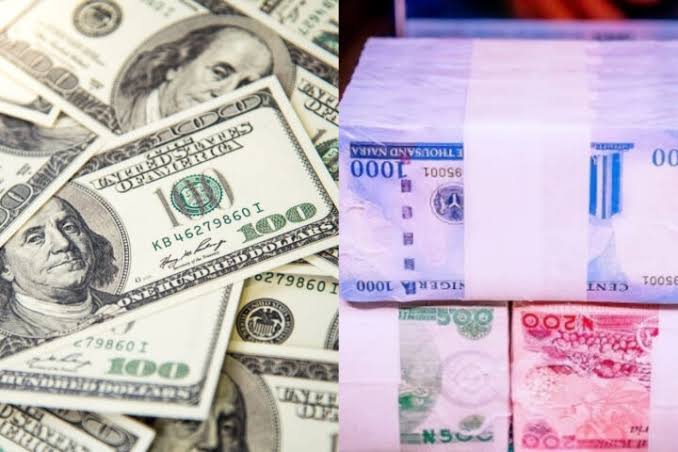The Nigerian Midstream and Downstream Petroleum Regulatory Authority (NMDPRA) says the Dangote Petroleum Refinery now supplies an average of 20 million litres of petrol daily, accounting for nearly half of Nigeria’s estimated 50 million litres daily consumption.
Gatekeepers News reports that NMDPRA Chief Executive Officer, Farouk Ahmed, disclosed this on Thursday at the Association of Energy Correspondents of Nigeria (NAEC) annual conference in Lagos.
“Without a shadow of doubt, the operation of the 650,000 barrels per day Dangote refinery has changed the supply dynamics with an average daily contribution of up to 20 million litres, undoubtedly with potential for future ramp-up, which we all hope we will see as we go along,” Ahmed said.
He was represented at the event by George Ene-Ita, the authority’s spokesperson.
Nigeria Consumes About 50 Million Litres Daily
Ahmed noted that the country’s national consumption stands at about 50 million litres of Premium Motor Spirit (PMS) per day. He urged continued support for the Dangote refinery to increase production capacity and strengthen domestic energy security.
“We need to encourage the biggest refinery to do all it can to begin to shape up in order for us to have local consumption and supply ramped up,” he said.
“To further strengthen our energy security, we must operationalize petroleum product stock in line with the provisions of the Petroleum Industry Act (PIA) 2021 to provide a buffer against major supply disruptions.”
Focus on Regulation and Energy Diversification
The NMDPRA CEO said the authority is expediting the implementation of licensing standards for storage and depot operations while intensifying surveillance of product movements to curb adulteration, hoarding, arbitrage, and truck-in-transit accidents.
“As a country, Nigeria is in urgent need of a diversified investment approach in our energy mix to further drive an expansion in the economy beyond the traditional focus on fossil fuels,” he said.
He noted that Nigeria currently has fewer than 3,000 LPG filling plants and fewer than 50 CNG compression stations, despite having a population of over 200 million people.
Ahmed emphasised that a strategic shift toward alternative energy sources could spur economic growth, create jobs, and broaden the government’s revenue base.
“Adopting a strategic approach to developing other energy sources has the potential to drive sustained economic growth,” he said. “It will also provide diversified income streams to support inclusive and scalable national development.”









